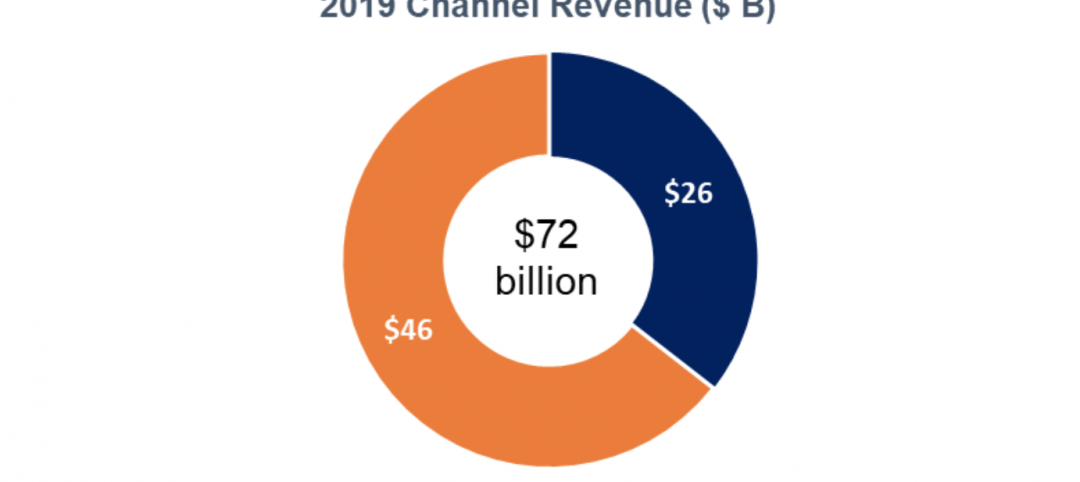The U.S. economy continues to show slow, steady progress despite fears of a global economic downturn and some domestic headwinds, according to the latest edition of “The Briefing,” a Transwestern report that covers the global economy and commercial real estate. Declining corporate profits, business investment and net exports combined with a rising dollar have been offset by consistent job gains, wage growth and resilient consumer spending.
Additionally, aggressive global stimulus plans appear to be having the desired effect. There is now $17 trillion of negative yielding debt in the world, and eurozone first-quarter 2016 gross domestic product growth came in at 2.2%, beating the U.S. for the first time in several years.
“While some see an economy in its final innings, there is little evidence of the financial excess, weak credit, deteriorating underwriting and surging defaults that typically signal the end of an expansion,” said Tom McNearney, Transwestern’s chief investment officer.
“Banks are maintaining, if not strengthening, underwriting standards and have even backed away from higher-yielding, risky loans to energy companies and highly leveraged corporate buyouts,” McNearney continued. “CMBS delinquencies also continue to reflect underwriting discipline. This caution by lenders is likely to prolong the cycle, not expedite a recession.”
 The sporting goods retailer Sports Authority declared bankruptcy in March and announced in May that it would close all of its 450-plus stores. Photo: Phillip Pessar/Creative Commons.
The sporting goods retailer Sports Authority declared bankruptcy in March and announced in May that it would close all of its 450-plus stores. Photo: Phillip Pessar/Creative Commons.
20 FAST FACTS FOR THE BIG PICTURE
- Business investment was up 1.4% in first quarter, but nondefense orders excluding aircraft fell by 2.4%.
- The number of energy loans in danger of default in 2016 is on track to exceed 50%.
- Standard & Poor’s 500 index second-quarter earnings are estimated to decline 4.8%, which would mark the first time the index has recorded five consecutive quarters of year-over-year declines since 2008 – 2009.
- S&P 500 lowered China’s credit rating from AA-neutral to AA-negative watch.
- Exxon was downgraded to AA+ from AAA by S&P 500.
- Arbor launched ALEX, the first online agency lending platform for multifamily in early 2016.
- Amazon plans to lease 20 767 Boeing Freighters from air cargo firm ATSG to further control distribution channels.
- Robots are more prevalent on the job as costs come down and programming is more versatile.
- Technology has boosted cancer research to light speed, which potentially could cause Big Pharma to lose $1.2 trillion in market capitalization.
- New Securities and Exchange Commission crowdfunding rules went into effect May 18, 2016.
- MetLife is selling life insurance business and 4,000 agents to MassMutual in advance of new capital rules and to avoid Dodd Frank designation as “systematically important.”
- New home sales show continued growth, up 17% in April over March, and a recent U.S. Census update shows suburbs are thriving while urban population growth has slowed.
- WeWork raised $430 million in a round of Chinese-led financing, providing an implied valuation of $16 billion for a startup company with limited owned space.
- Major retailers such as Sears and Wal-Mart plan to close stores, while Kohl’s, Gap and Nordstrom experienced sharply lower sales and profits, and Sports Authority filed for bankruptcy.
- Home Depot and TJX Companies first-quarter sales were up 10% and 7%, respectively, and Amazon is now second behind Wal-Mart in apparel sales.
- Auto sales continue at a record pace, with some signs companies are stretching to feed demand.
- First-quarter property sales were down 20%, but pullback was partially due to difficult-to-replicate portfolio and entity-level activity in 2015. Single asset sales were down 11% year-over-year.
- First-quarter CMBS issuance was down 25% due to swap spread volatility and ongoing uncertainty about risk retention rules taking effect December 2016.
- FPL Advisory Group forecast some tapering of pension investment in 2016 to $40 billion despite a recent Preqin survey reporting 78% of investors expect to commit the same amount or more to commercial real estate in 2016.
- The Federal Aviation Administration approved Houston’s Ellington Airport as a launch site: The U.S. will send astronauts and cargo to the International Space Station in 2017 – instead of paying Russia $71 million per flight.
Related Stories
Market Data | Apr 10, 2020
5 must reads for the AEC industry today: April 10, 2020
Designing for the next generation of student life and a mass timber Ramada Hotel rises in British Columbia.
Market Data | Apr 9, 2020
7 must reads for the AEC industry today: April 9, 2020
Urine could be the key to building in outer space and how to turn a high school into a patient care center in just over two weeks.
Market Data | Apr 8, 2020
6 must reads for the AEC industry today: April 8, 2020
Stantec discusses how hospitals can adapt buildings to address worst-case scenarios and FXCollaborative Architects tells us why cities will survive the pandemic.
Market Data | Apr 7, 2020
7 must reads for the AEC industry today: April 7, 2020
Leo A Daly's Hotel2Hospital prototype takes shape, while the number of delayed projects reaches 2,550 in the U.S. amid coronavirus pandemic.
Market Data | Apr 3, 2020
COVID-19 cuts nonresidential construction employment in March
The construction unemployment rate was 6.9% in March, up 1.7 percentage points from the same time one year ago.
Market Data | Apr 1, 2020
February’s construction spending decline indicates what’s to come
Private nonresidential spending declined 2% on a monthly basis and is down 0.7% compared to February 2019.
Market Data | Mar 26, 2020
Architects taking action to support COVID-19 response
New AIA task force will offer insights for adapting buildings into healthcare facilities.
Market Data | Mar 26, 2020
Senate coronavirus relief bill's tax and lending provisions will help construction firms, but industry needs additional measures
Construction officials say measure will help firms cope with immediate cash flow crunch, but industry needs compensation for losses.
Market Data | Mar 25, 2020
Engineering and construction materials prices fall for first time in 40 months on coronavirus impacts, IHS Markit says
Survey respondents reported falling prices for five out of the 12 components within the materials and equipment sub-index.

















